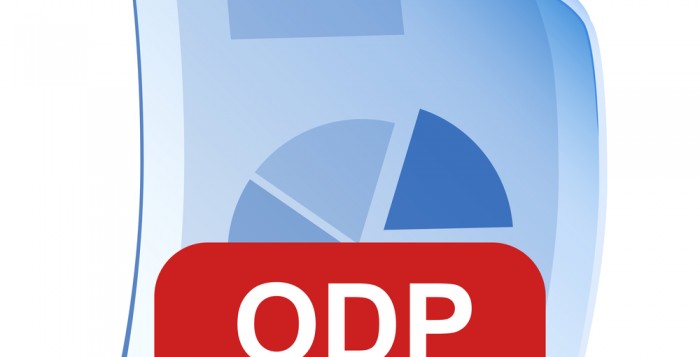Carol Ferenz
Dual Diagnosis Conference to Be Held Virtually on May 18 — Register Today!

President’s Committee for People With Intellectual Disabilities Public Meeting — May 1
May 1, 2023
12:00 pm ET
The Committee will collectively discuss emerging Home and Community-Based Services (HCBS) issues identified by four PCPID work groups in the areas of direct support professionals, employment, community living, and federal support programs. This discussion will help develop a general framework for the preparation of the PCPID Report to the President.
If requesting accommodations for meeting participation, please send an email request by April 17, 2023. Both ASL and CART will be provided during the meeting. Register here.
RSA Invites Applications for Improving Pre-Employment Transition Services for Youth With Disabilities
The U.S. Department of Education Rehabilitation Services Administration (RSA) is pleased to announce a notice inviting applications on April 5, 2023, for the Disability Innovation Fund Pathways to Partnerships Innovative Model Demonstration Project (Pathways to Partnerships), Assistance Listing Number 84.421E. The application deadline is June 5, 2023.
The Pathways to Partnership program is the largest discretionary grant administered by RSA, with an estimated $224 million available to fund multiple innovative model demonstration projects administered through partnerships among state vocational rehabilitation agencies, state or local education agencies, and centers for independent living focused on the creation of systemic approaches to improve access to pre-employment transition services for children and youth with disabilities.
As children and youth with disabilities move through the school system, many do not have exposure to self-advocacy training, careers, and independent living opportunities. This historical funding opportunity advances a key goal of the Biden-Harris Administration to pave a clear and robust path to independent living and competitive integrated employment as children and youth with disabilities transition from high school to postsecondary endeavors.
The Notice Inviting Applications and additional information, including the Application Package, can be found at the following resources:
- RSA website (link to the Federal Register Notice and additional information)
- NCRTM: OSERS will conduct a pre-application meeting specific to this competition on Tuesday, April 25, 2023, at 2:00 pm ET to respond to questions. More details are forthcoming. Please continue to check for more information.
The teleconference information, including the 84.421E pre-application meeting summary of the questions and answers, will be available within six business days after the pre-application meeting. - GRANTS Government website (link to application package)
- QUESTIONS: OSERS invites you to send questions via email in advance of the pre-application meeting.
Reminder: Join ODP for the Employment Regional Symposium

The Office of Developmental Programs (ODP) is inviting leadership professionals from Administrative Entities (AEs), Support Coordination Organizations (SCOs), Providers of Supported Employment Services and Day Habilitation, and Providers of Community Participation Support (CPS) to attend a 1-day Employment Symposium. The Symposium will be held regionally across the Commonwealth on April 25, May 4, and May 12 from 10:00 am – 3:00 pm with a boxed lunch provided.
The goals of the Regional Employment Symposium are to:
- Provide a platform for networking, information/resource sharing, and best practices for employer engagement;
- Identify strategies for engaging employers on the benefits of hiring people with disabilities using a dual-customer approach; and
- Initiate an improvement process by creating goals and best practices to reach and increase employment rates for people with disabilities.
Agenda:
10:00 am – 10:30 am
Opening Remarks by Kristin Ahrens, ODP Deputy Secretary, and Ryan Hyde, Executive Director for the Office of Vocational Rehabilitation (OVR)
10:30 am – 11:30 am
Panel discussion featuring an individual from that region with lived employment experience, along with their support team that got them to competitive integrated employment.
11:30 am – 12:00 pm
Small group discussions to network, share experiences of engaging in community integrated employment, resources, and tools.
12:00 pm – 1:00 pm
Lunch
1:00 pm – 2:00 pm
Keynote address: Cultivating Relationships With Employers, by Stephen Martynuska. Stephen is a consultant from Sheetz, Inc.
2:00 pm – 2:45 pm
Small group discussion with the opportunity to report out to the larger group on takeaways from the day, as well as sharing resources and tools for engaging employers.
2:45 pm – 3:00 pm
Closing remarks/wrap-up by Kristin Ahrens and Ryan Hyde.
Please register for the location nearest you. Only register for one session. You must complete a Demographics Form before selecting the session you wish to attend, and please identify any dietary restrictions or allergies on your Demographics Form. You must also indicate if you need accommodation(s) as addressed by the Americans With Disabilities Act. Reasonable efforts will be made to meet the need.
| Date | Venue | Registration Closes |
| April 25, 2023 10:00 am – 3:00 pm |
PaTTAN Central 6340 Flank Road Harrisburg, PA 17112 |
April 18, 2023 |
| May 4, 2023 10:00 am – 3:00 pm |
PaTTAN West 3190 William Pitt Way Pittsburgh, PA 15238 |
April 28, 2023 |
| May 12, 2023 10:00 am – 3:00 pm |
Bucks County Community College 275 Swamp Road Newtown, PA 18940 |
May 6, 2023 |
There is a limited number of seats at each location, and they will be filled on a first come, first served basis. In addition to your initial registration confirmation, you will receive an email with specific instructions about the location of the symposium one week prior to your scheduled event.
As a reminder, please be respectful of others. If you are not feeling well the day of the event, do not attend. Attendees are encouraged to wear a mask and maintain respectful distance from others so that everyone can participate and feel comfortable.
Reminder: Registration is Open for the ODP 2023 Autism Spectrum Disorder (ASD) Virtual Seminar

Through the Lens of Autism: Exploring Priority Areas and Building Support for Everyday Challenges
Through research and experience, we have learned that implementing the right tools can help us be better supporters for people on the autism spectrum. But what are those tools? How do you know what the needs are so you can begin to gather effective resources? This year’s Office of Developmental Programs (ODP) training needs survey asked you to share the top areas of need that people on the autism spectrum experience. As a response to the survey, this seminar will provide a deeper look into a variety of priority areas, including communication, mental health, online safety, and family systems that impact everyday life. We will invite you to join in the conversation and share your experiences, successes, and resources. Together we will expand our understanding of key challenges that people are facing and brainstorm multiple ways to provide effective and meaningful supports.
Please join ODP on one of the dates listed below:
Wednesday, April 12, 2023, from 9:30 am – 1:30 pm
Monday, April 24, 2023, from 11:30 am – 3:30 pm
How to Register:
Visit MyODP and log in to your account. If you do not have an account, you can create one for free. Complete the demographics form. Select the “Microsoft Teams” link for the date you wish to attend and enter your name and email to register. An email confirmation will be sent.
If you have questions, please contact ODP via email with subject line “ASD Seminar.”
PA ODP Division of Quality Management’s QM Spotlight Issue 4, Spring 2023 Released
ODP Releases QA&I Interim Year 1 and Interim Year 2 Individual Interviews Report
ODP Announcement 23-033 shares that data is now available from the Office of Developmental Programs (ODP) Quality Assessment and Improvement (QA&I) Individual Interviews Report for Interim Year 1 and Interim Year 2. The report provides aggregated individual response data from QA&I individual interviews conducted during IY1 and IY2 of the QA&I cycle for all ODP waivers.
Access this report here. This document can also be found by visiting MyODP and following this path: Resources > Quality Management > QAI Reports. All QA&I reports are available here.
AAW Quarterly Incident and Risk Management Meeting on April 14
The upcoming AAW quarterly meetings will be held for all Office of Developmental Programs (ODP) providers and Support Coordinators (SC) providing AAW services. Pam Treadway and Heather Easley will facilitate these meetings with the intent to provide updates on incident and risk management related activities, share AAW data, inform providers of any upcoming changes, review ODP expectations, etc. Providers will be able to network with one another and ask questions directly to BSASP.
The upcoming meeting will have a focus on restrictive interventions. Our BSASP clinical colleague, Jordan Hollander, will join for this focused topic presentation/discussion.
Friday, April 14
2:30 pm – 4:00 pm
Register Here
Multiple staff from a provider may attend but should register separately. Be sure to complete all required information to confirm attendance. A link to the meeting will be send prior to the scheduled meeting date.
Future Meeting Dates:
- July 18, 9:00 am – 10:30 am
- October 19, 2:30 pm – 4:00 pm
Registration announcements for future dates will be sent out prior to the meeting date.
Please contact the Provider Support inbox with questions.
ISP Virtual Training for AE ISP Reviewers Announced
ODP Announcement 23-032 announces three half-day virtual training sessions regarding implementation of the Residential Individual Support Plans (ISP) Staffing approach for Administrative Entity (AE) staff. The pre-requisite requirements and training dates are available on MyODP.
The sessions are geared toward AE staff and supervisory staff who routinely review and approve ISPs. The training focuses on AE expectations and ensuring consistent, statewide implementation of the Residential ISP Staffing approach.
Please review the communication for complete information.














